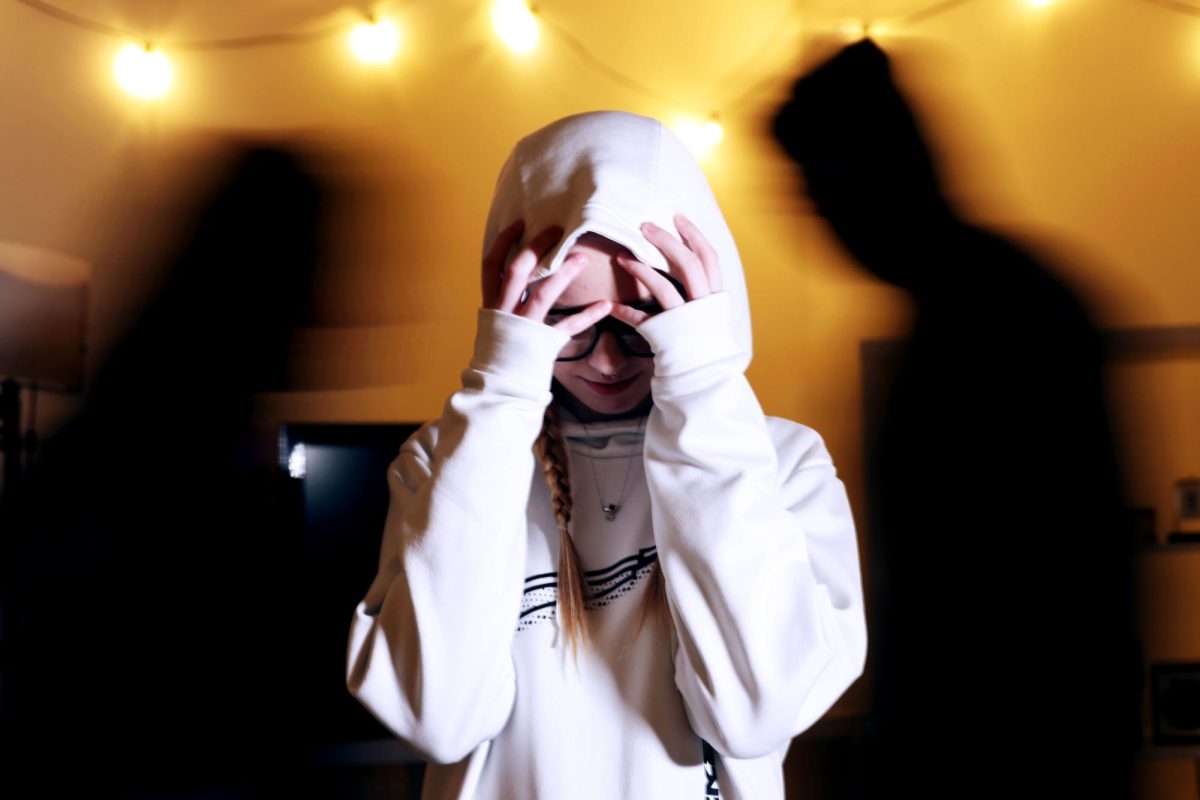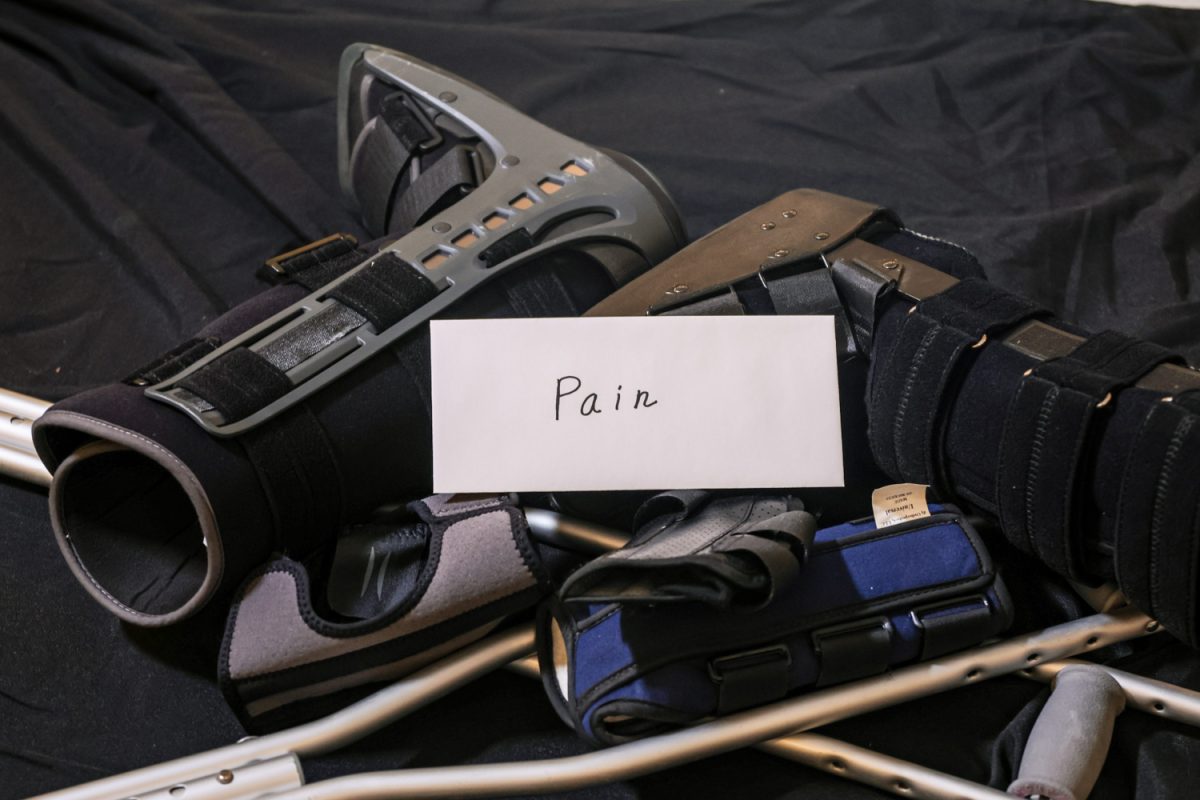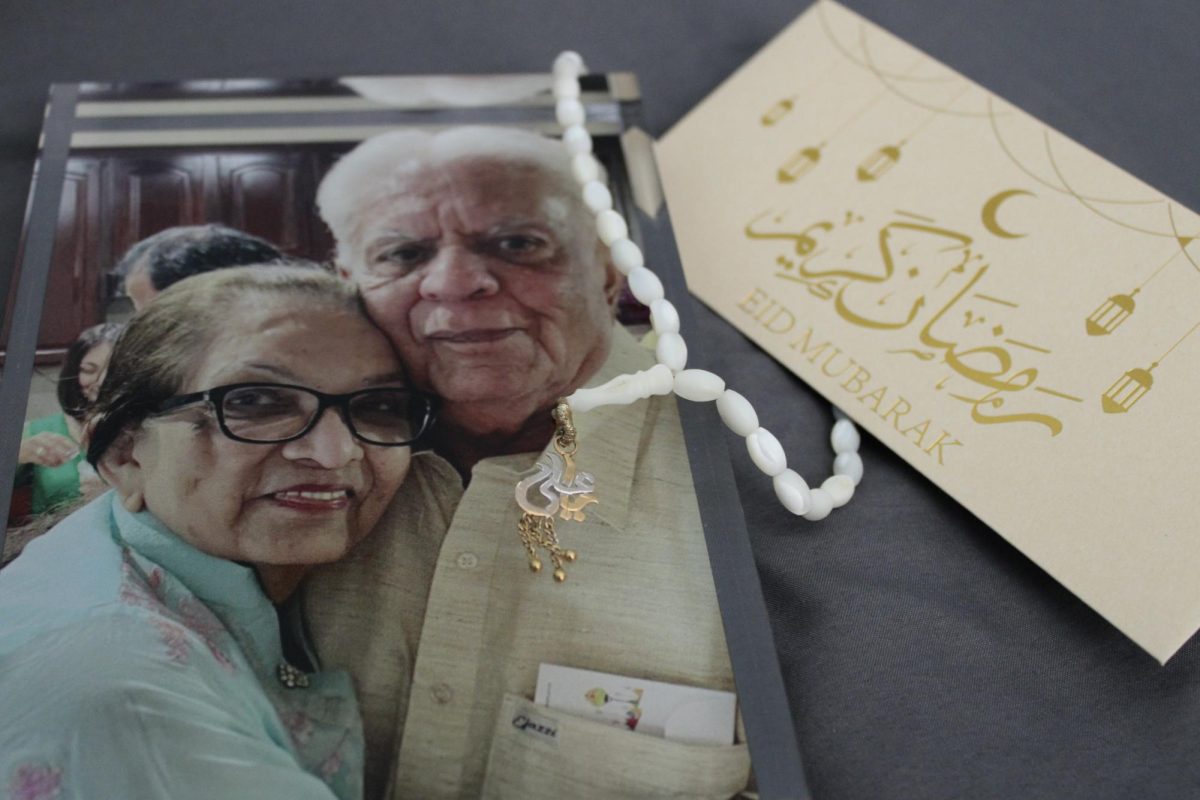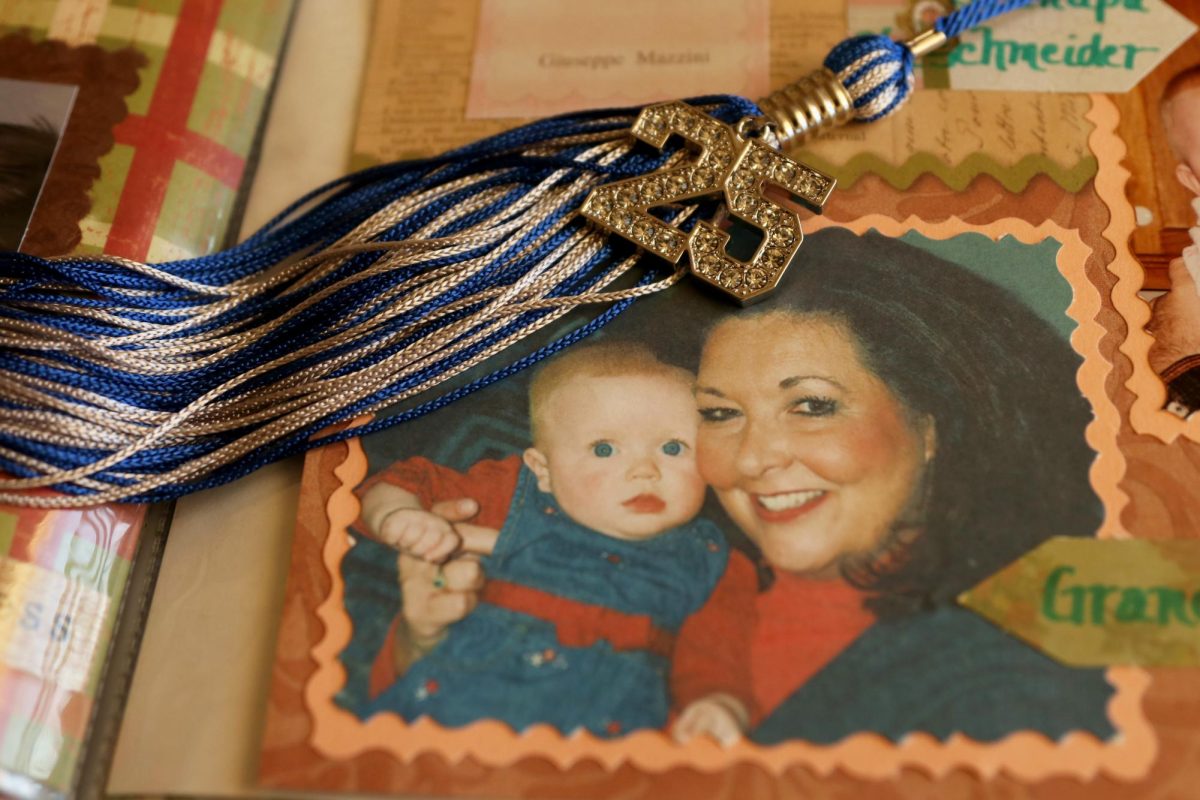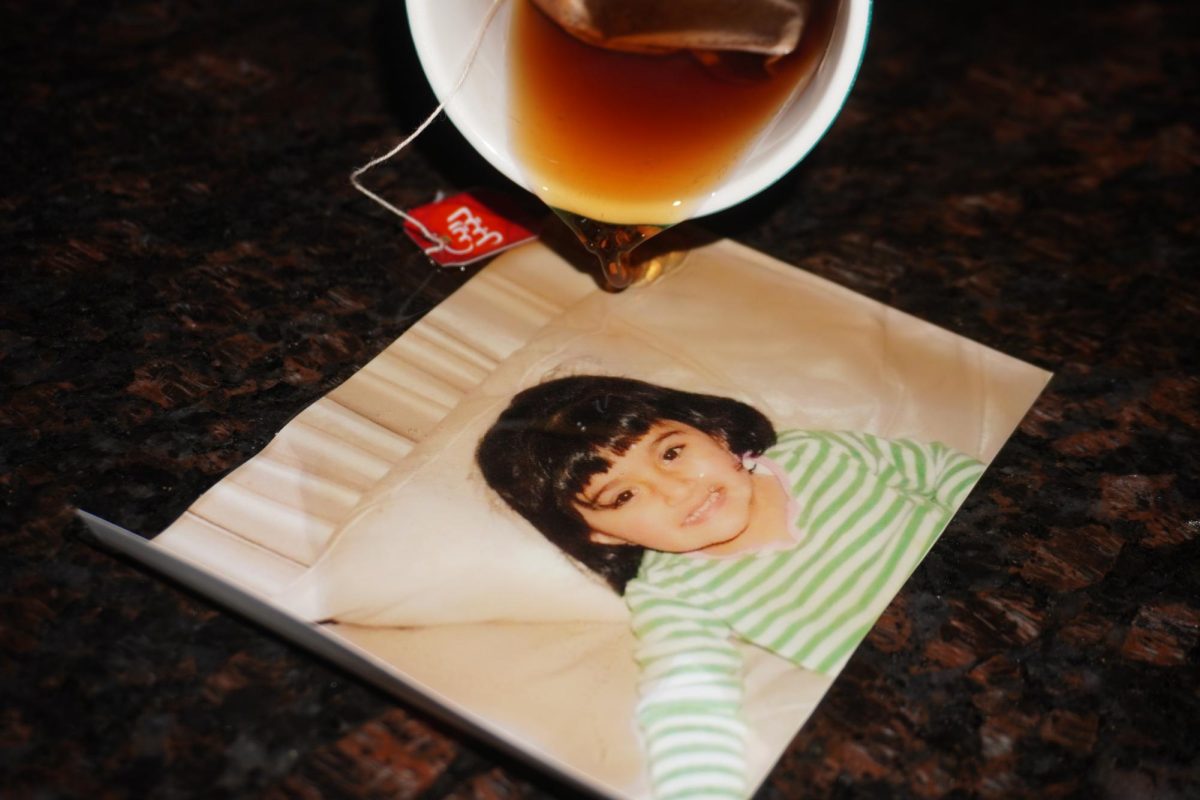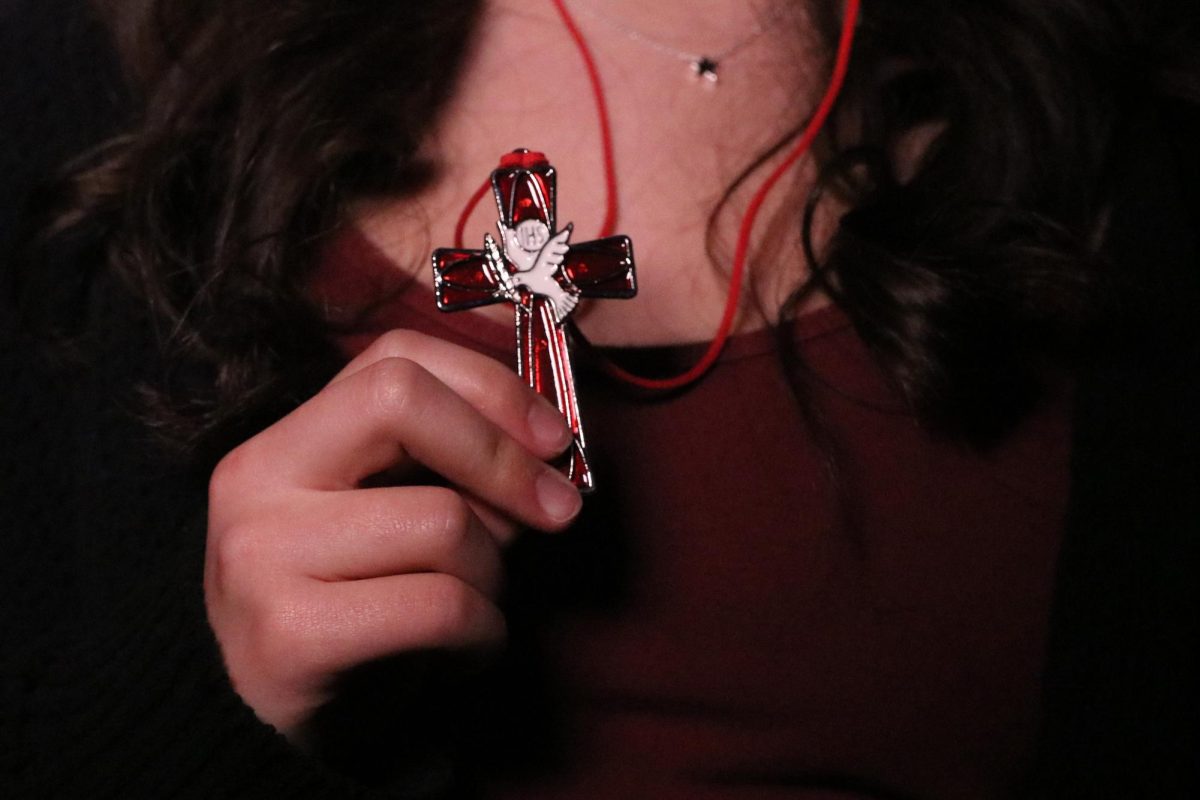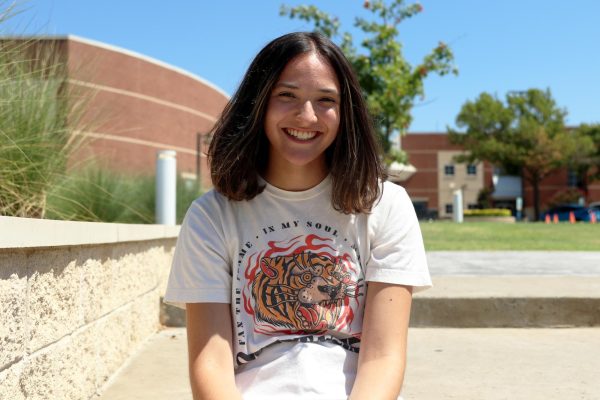I began throwing up every single night. Part of it was for the comfort my parents would give me, which eased the aching feelings, but mostly, it was to delay going to sleep that night.
It was a weird quirk of mine; no other kids I knew threw up every night. Still, I could never quite pinpoint why I was different.
These quirks became a recurring pattern in my childhood. When my grandparents put me in swim lessons, I cried, threw up and begged them to let me stay home every morning. When my parents put me in daycare, I cried so hard on the first day that my mom had to stay with me for an hour.
I was the emotional kid in school; I was the kid who cried over every minor inconvenience and the one who was too afraid to do anything mildly adventurous.
As I grew up, I matured past the constant crying and throwing up, but the feeling never left my side. It was like a shadow that loomed over me every second of every day.
That shadow developed a name: anxiety.
Anxiety affects almost every aspect of my life. It’s like the shadow has its fingers gripped between every crevice of my brain. I can’t go anywhere without scanning every crowd, wondering what every face is thinking about me. I carefully curate every move I make to gain the approval of those faces.
Even while doing the things I love, I constantly catch myself wondering if I’m really good enough. I’m always scared to make one wrong move because, if I do, the faces will be disappointed.
Around my friends or family, I’ve been told I’m scared of everything, and I never want to do anything fun. The worst-case scenario is always playing in my head on repeat. I could make pages upon pages listing my fears I’ve been told are irrational, but in my head, the shadow is constantly rationalizing it.
I never truly understood where all of my odd quirks and fears came from up until high school, when I began struggling with panic attacks almost weekly. Both of my parents struggled with anxiety, and I slowly began to realize that my symptoms mirrored theirs.
I used to lay in my bed at night and stare at the ceiling. Every night, without fail, my chest would ache and my stomach would sink.
I was afraid of falling asleep.
It was an odd fear, but my 7-year-old brain believed I was going to die in my sleep.
Even now that I know why I feel the way I do, I have never fully grasped how to cope with it. I still struggle with finding the line between what is real and what is my anxiety telling me something is real. Even though I still don’t fully understand it, I have learned that is OK. It is OK to struggle, to not know what is going on and not know what to do about it.
If I could find a magic solution to fix my anxiety, I would bottle it up and keep it forever, but, the hard truth is: there is no real solution, only ways to temporarily cope.
I found that people are a very comforting thing. Even if it’s just one person, having someone by my side eases the nervous feelings. It’s like having a guardian — someone who can keep the shadow away for just a few minutes, someone who keeps the looming faces from disapproving and someone who can hug or console me when the feelings won’t go away.
While anxiety still affects me every day, I don’t let it control me anymore. Now that I understand my feelings and can put a name to them, they are easier to manage. Naming my feelings is not a perfect solution, but it is helpful. Knowing where feelings come from and what causes them makes it easier to combat them at the root. If I can find that a certain thing worsens my anxiety, such as crowds of people or doing something on my own, I know to avoid those things for my own betterment.
The shadow of anxiety will always loom over me, and there is nothing I can do about that. However, I can do my best to live a normal life and escape the grip it has had on me for far too long.



